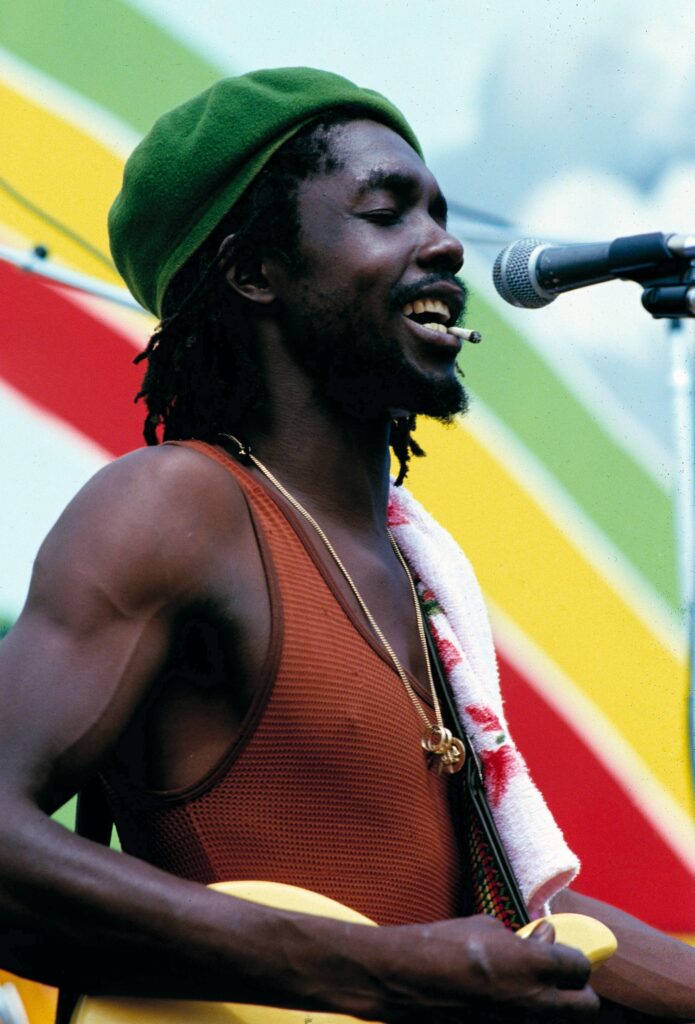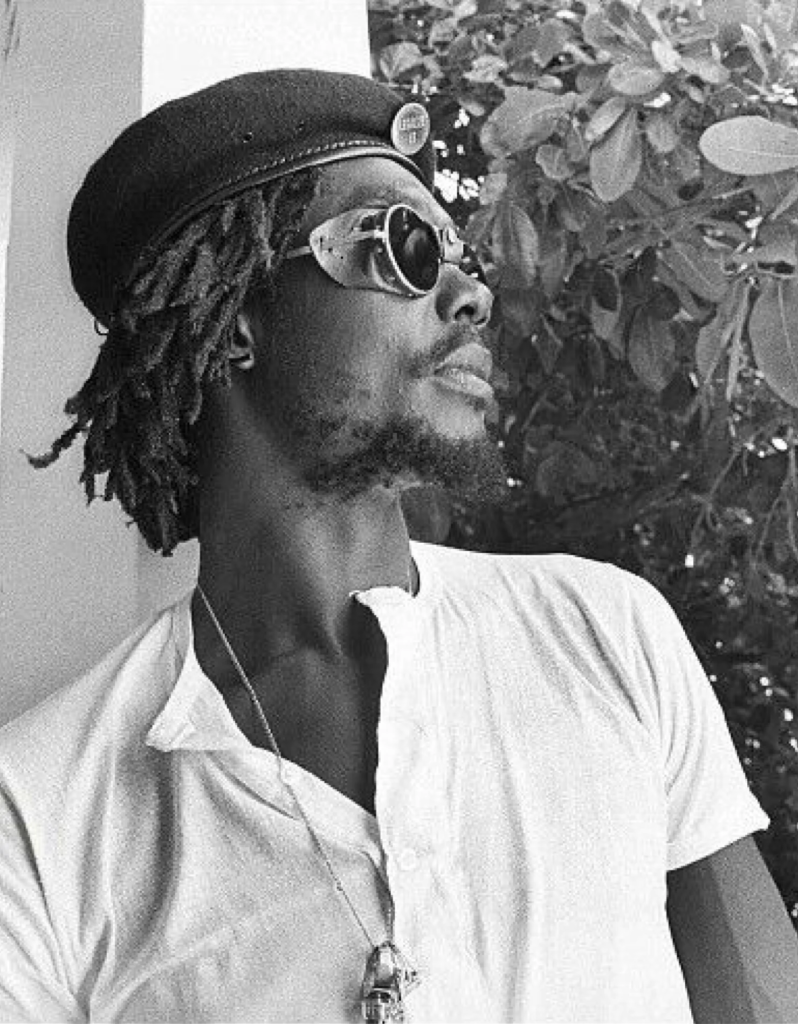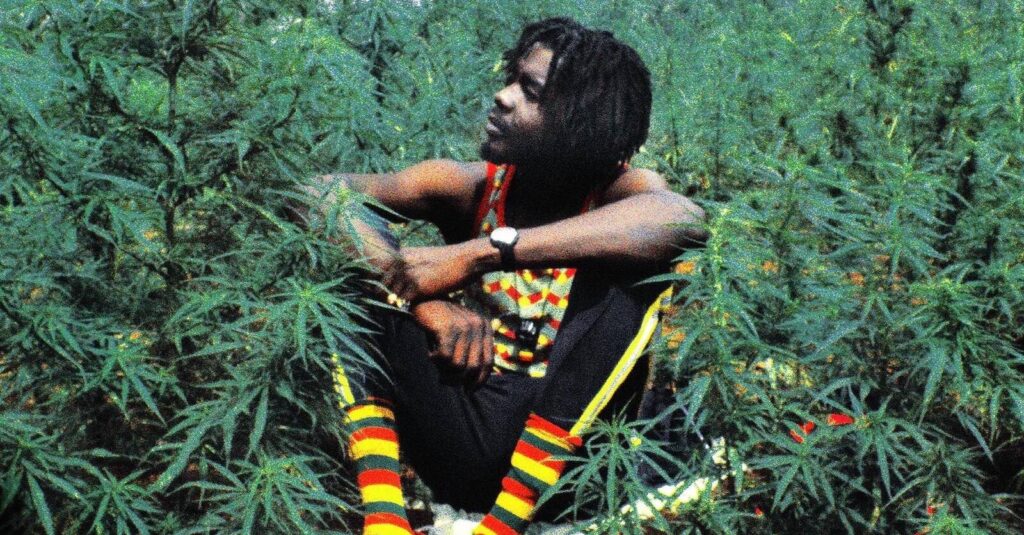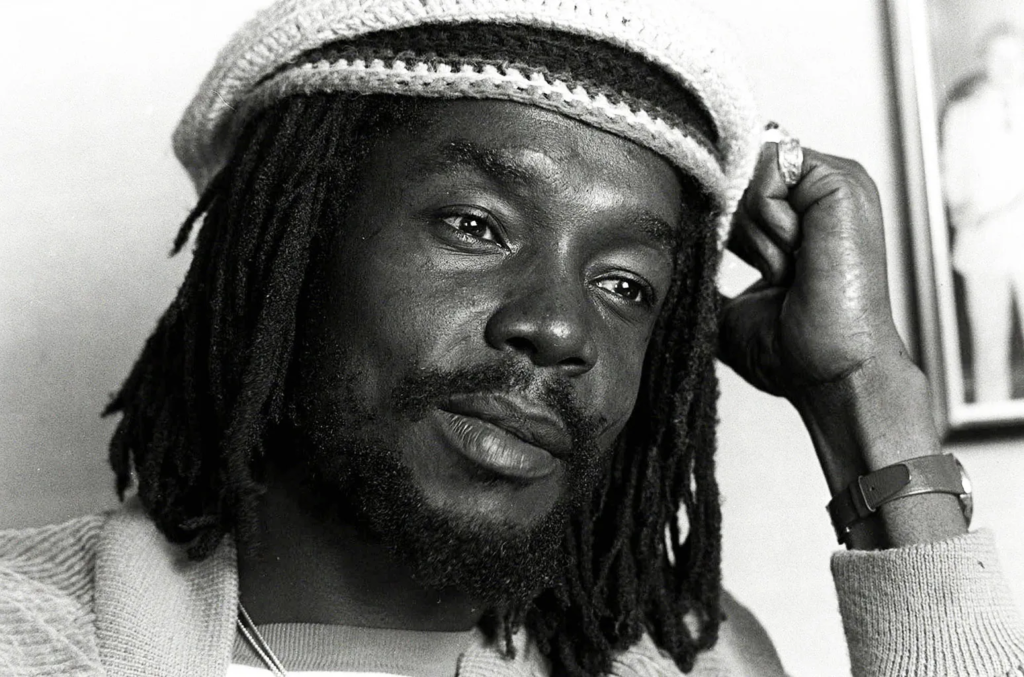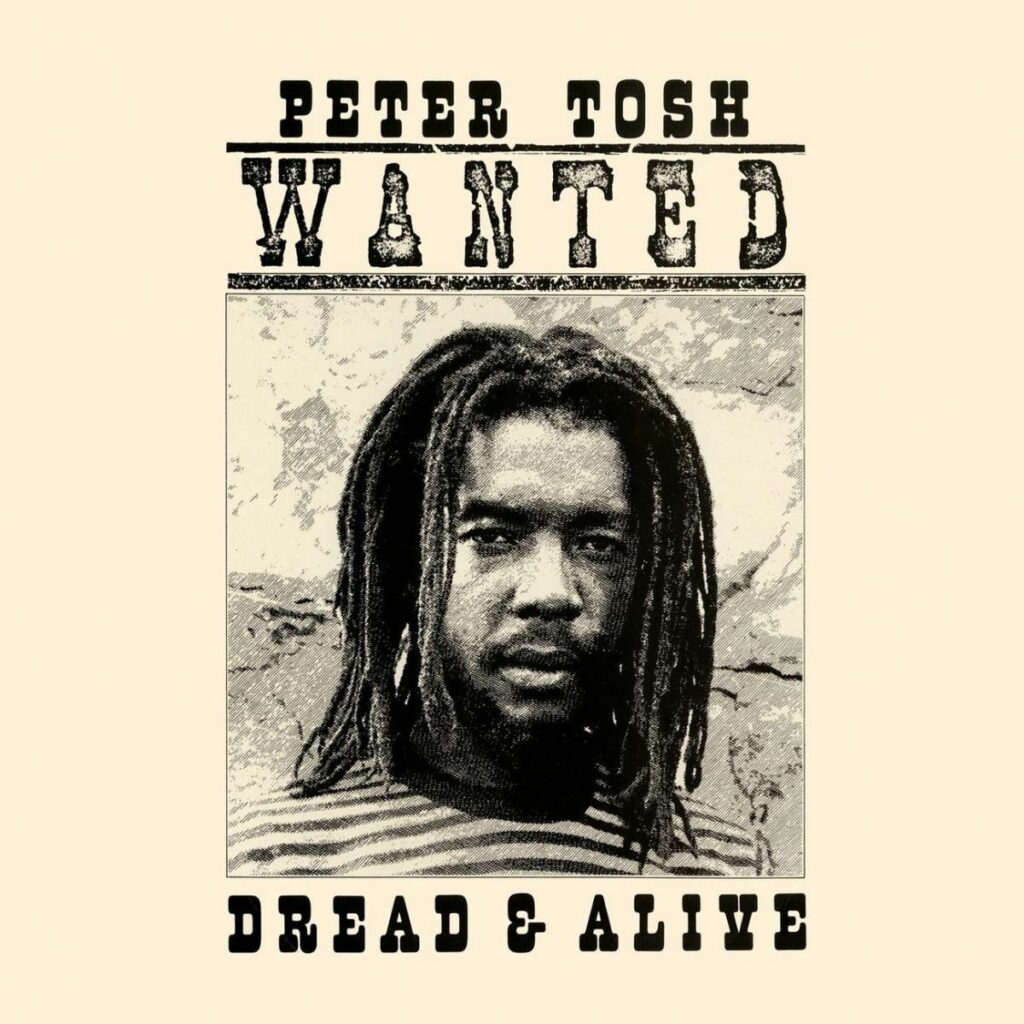
Peter Tosh was a revolutionary artist whose impact on reggae music and global culture is profound. As a founding member of The Wailers, alongside Bob Marley and Bunny Wailer, Tosh played a crucial role in bringing reggae to international audiences. However, his solo career is where Tosh truly carved out his identity as a militant advocate for social justice, human rights, and Rastafarianism. His solo albums stand as powerful statements that not only showcase his musical talent but also his unwavering commitment to the causes he believed in.
In this blog post, we’ll take a deep dive into Peter Tosh’s solo career, exploring each of his albums, the themes he addressed, and the legacy he left behind. Whether you’re a long-time fan or new to Tosh’s music, this post will provide a comprehensive look at the body of work that defined his solo career.
The Beginning of a Solo Journey: Legalize It (1976)
Peter Tosh’s decision to embark on a solo career came after years of success with The Wailers. Frustrated by the creative direction of the band and the industry’s focus on Bob Marley as the frontman, Tosh sought to establish his own voice. His debut solo album, Legalize It, was released in 1976, and it marked the beginning of a new chapter in his musical journey.
Legalize It is an audacious and unapologetic album that sets the tone for Tosh’s solo career. The title track, “Legalize It,” became an anthem for the Rastafarian movement and the global push for marijuana legalization. Tosh’s advocacy for the legalization of cannabis was deeply rooted in his Rastafarian beliefs, where ganja is considered a sacrament. The song’s lyrics—”Legalize it, don’t criticize it”—are a direct challenge to the oppressive laws that criminalized the use of marijuana, particularly in Jamaica, where Rastafarians faced persecution for their spiritual practices.
The album is more than just a pro-ganja statement; it’s a powerful exploration of themes such as resistance, empowerment, and social justice. Tracks like “Burial” and “No Sympathy” reflect Tosh’s deep-seated anger at the injustices faced by the oppressed, while “Why Must I Cry” showcases a more introspective side of the artist, dealing with themes of pain and heartache.
Legalize It was a commercial success and established Tosh as a formidable solo artist. The album’s boldness and militancy set it apart from the more accessible sounds of Bob Marley’s work, and it resonated with audiences who were drawn to Tosh’s uncompromising stance on social and political issues.
A Call to Revolution: Equal Rights (1977)
Following the success of Legalize It, Peter Tosh released Equal Rights in 1977, an album that is widely regarded as one of the most significant works in reggae music. While Legalize It introduced Tosh as a solo artist, Equal Rights solidified his reputation as a revolutionary figure in the fight for social justice and human rights.
Equal Rights is a militant and politically charged album that addresses issues such as apartheid, colonialism, and systemic oppression. The title track, “Equal Rights,” is a powerful demand for justice and equality, with Tosh declaring, “Everyone is crying out for peace, none is crying out for justice.” The song became an anthem for liberation movements around the world, particularly in Africa, where Tosh’s music found a receptive audience among those fighting against colonial rule and apartheid.
Other standout tracks on the album include “Get Up, Stand Up,” co-written with Bob Marley, which is a rallying cry for the oppressed to rise up and fight for their rights. “Downpressor Man” is a haunting warning to those who wield power unjustly, while “Apartheid” is a searing condemnation of the racial segregation and discrimination in South Africa.
Musically, Equal Rights blends traditional reggae rhythms with elements of rock and blues, creating a sound that is both deeply rooted in Jamaican culture and innovative in its approach. Tosh’s distinctive voice and guitar work, coupled with his sharp, assertive lyrics, make Equal Rights a landmark album that continues to inspire and resonate with listeners today.
Spiritual and Political Militancy: Bush Doctor (1978)
In 1978, Peter Tosh released Bush Doctor, an album that further cemented his reputation as a militant advocate for social change. The album’s title refers to Tosh’s belief in the healing power of natural herbs, particularly ganja, which he viewed as a spiritual tool and a means of resistance against the oppressive forces of “Babylon.”
The album opens with the track “Creation,” a deeply spiritual song that reflects Tosh’s Rastafarian beliefs and his reverence for the natural world. “Bush Doctor,” the title track, is a declaration of Tosh’s role as a healer and spiritual guide, offering natural remedies to the world’s problems. The song’s lyrics, “I’m the Bush Doctor, so no need for your doctor,” reflect Tosh’s rejection of Western medicine and his belief in the power of natural herbs.
One of the most notable tracks on Bush Doctor is “Moses – The Prophet,” a song that pays tribute to the biblical figure of Moses, whom Tosh viewed as a symbol of liberation and resistance. The album also features a collaboration with Rolling Stones frontman Mick Jagger on the track “Don’t Look Back,” a cover of the Temptations’ classic. The collaboration helped to introduce Tosh’s music to a broader audience and solidified his status as a global music icon.
Bush Doctor is an album that blends spiritual themes with militant activism, and it reflects Tosh’s commitment to using his music as a vehicle for social change. The album’s innovative sound and powerful messages make it one of Tosh’s most enduring works.
A Voice for the Oppressed: Mystic Man (1979)
Mystic Man, released in 1979, is an album that delves into Peter Tosh’s identity as a spiritual leader and a voice for the oppressed. The album’s title track, “Mystic Man,” is a declaration of Tosh’s commitment to living according to the principles of Rastafarianism and rejecting the materialism and corruption of the world.
In “Mystic Man,” Tosh asserts his identity as a “mystic man,” living a life of spiritual purity and resisting the temptations of Babylon. The song’s lyrics, “I don’t drink no champagne, no, and I don’t sniff them cocaine,” reflect Tosh’s rejection of the trappings of modern society and his embrace of a higher spiritual path.
Other tracks on the album continue to explore themes of resistance and empowerment. “Fight On” is a call to action for those who are oppressed to continue fighting for their rights, while “Jah Seh No” is a warning to those who would try to oppress the righteous. The album’s closing track, “Buk-In-Hamm Palace,” is a satirical take on the British monarchy and a critique of colonialism.
Musically, Mystic Man blends reggae with elements of rock and jazz, creating a sound that is both innovative and deeply rooted in Jamaican tradition. The album showcases Tosh’s versatility as an artist and his ability to address complex social and political issues through his music.
Mystic Man is a testament to Peter Tosh’s commitment to his beliefs and his role as a leader in the Rastafarian movement. The album’s themes of spiritual purity, resistance, and empowerment continue to resonate with listeners today, making it one of Tosh’s most important works.
A Fight for Freedom: Wanted Dread & Alive (1981)
In 1981, Peter Tosh released Wanted Dread & Alive, an album that reflects his ongoing commitment to the fight for freedom and justice. The album’s title is a play on the phrase “Wanted Dead or Alive,” and it reflects Tosh’s defiant attitude and his refusal to be silenced by the forces of oppression.
The album opens with the track “Coming in Hot,” a powerful anthem of resistance that sets the tone for the rest of the album. The song’s lyrics, “Coming in hot, hot, hot, no place to run, you got to face it,” reflect Tosh’s determination to confront the challenges of the world head-on and to fight for what he believes in.
“Wanted Dread & Alive,” the title track, is a declaration of Tosh’s status as a revolutionary figure who is willing to fight for justice, no matter the cost. The song’s lyrics, “Wanted dread and alive, by the evil forces, ’cause they don’t want to see us survive,” reflect Tosh’s belief that the forces of Babylon are actively working to oppress and destroy those who seek justice.
Other tracks on the album continue to explore themes of resistance and empowerment. “Rastafari Is” is a powerful declaration of Tosh’s faith and his commitment to the principles of Rastafarianism, while “The Poor Man Feel It” addresses the struggles of the poor and oppressed.
Wanted Dread & Alive is an album that showcases Peter Tosh’s ability to blend militant activism with spiritual themes, creating a sound that is both powerful and deeply meaningful. The album’s themes of resistance, empowerment, and spiritual sovereignty continue to resonate with listeners today, making it one of Tosh’s most important works.
A Return to Roots: Mama Africa (1983)
Mama Africa, released in 1983, is an album that reflects Peter Tosh’s deep connection to Africa and his commitment to the Pan-African movement. The album’s title is a tribute to the continent of Africa, which Tosh viewed as the spiritual and cultural homeland of all black people.
The album opens with the track “Mama Africa,” a powerful anthem of love and respect for the African continent. The song’s lyrics, “Mama Africa, how are you? I’m feeling fine, and I hope you’re fine too,” reflect Tosh’s deep connection to Africa and his belief in the importance of reconnecting with African roots.
“Mama Africa” is followed by “Glass House,” a song that addresses issues of hypocrisy and corruption, with Tosh warning those who live in “glass houses” not to throw stones. The album also features a cover of Chuck Berry’s “Johnny B. Goode,” which Tosh reinterprets through a reggae lens, infusing the classic rock and roll hit with his unique style and energy.
Other standout tracks on the album include “Not Gonna Give It Up,” a declaration of Tosh’s determination to continue fighting for justice, and “Feel No Way,” a song that reflects Tosh’s belief in the power of love and unity to overcome the challenges of the world.
Mama Africa is an album that blends themes of resistance, empowerment, and cultural pride, creating a sound that is both deeply rooted in African tradition and forward-looking in its approach. The album reflects Peter Tosh’s commitment to the Pan-African movement and his belief in the importance of reconnecting with African roots.
The Final Chapter: No Nuclear War (1987)
No Nuclear War, released in 1987, was Peter Tosh’s final studio album, and it stands as a powerful statement of his commitment to peace, justice, and the fight against oppression. The album’s title reflects Tosh’s opposition to nuclear weapons and his belief in the need for global disarmament.
The album opens with the title track, “No Nuclear War,” a powerful anti-war anthem that addresses the dangers of nuclear weapons and the need for peace. The song’s lyrics, “No nuclear war, we don’t want no nuclear war,” reflect Tosh’s belief in the importance of global disarmament and his opposition to the arms race.
Other standout tracks on the album include “Nah Goa Jail,” a song that addresses the issue of police brutality and the criminalization of the poor, and “In My Song,” a declaration of Tosh’s commitment to using his music as a vehicle for social change.
No Nuclear War is an album that reflects Peter Tosh’s ongoing commitment to the fight for justice and peace, and it stands as a powerful testament to his legacy as a revolutionary artist. The album’s themes of resistance, empowerment, and peace continue to resonate with listeners today, making it one of Tosh’s most important works.
Tragically, Peter Tosh was murdered shortly after the release of No Nuclear War, cutting short a career that had already had a profound impact on the world of music and activism. The album won the Grammy Award for Best Reggae Album in 1988, a fitting tribute to an artist whose work continues to inspire and resonate with people around the world.
The Legacy of Peter Tosh’s Solo Career
Peter Tosh’s solo career is a powerful testament to his unwavering commitment to social justice, human rights, and Rastafarianism. Through his music, Tosh addressed the struggles of the oppressed, challenged the forces of Babylon, and inspired countless people to join the fight for justice and equality. Celebrate the legend with this exclusive Peter Tost T Shirt!
Each of Tosh’s albums reflects a different aspect of his identity as an artist and activist, from the bold advocacy of Legalize It to the militant resistance of Equal Rights and the spiritual leadership of Mystic Man. His work continues to resonate with listeners today, and his legacy as a revolutionary artist remains as strong as ever.
Peter Tosh’s solo career is more than just a body of work; it is a call to action, a reminder that the fight for justice is ongoing, and a testament to the power of music to inspire change. Whether through his lyrics, his activism, or his spiritual teachings, Tosh’s influence continues to be felt around the world, and his legacy will continue to inspire future generations of artists and activists for years to come.
Ignite your passion for reggae music and style with our handpicked selection of tees.
Get yours here: https://zionwake.com/
Source: wikipedia.org
